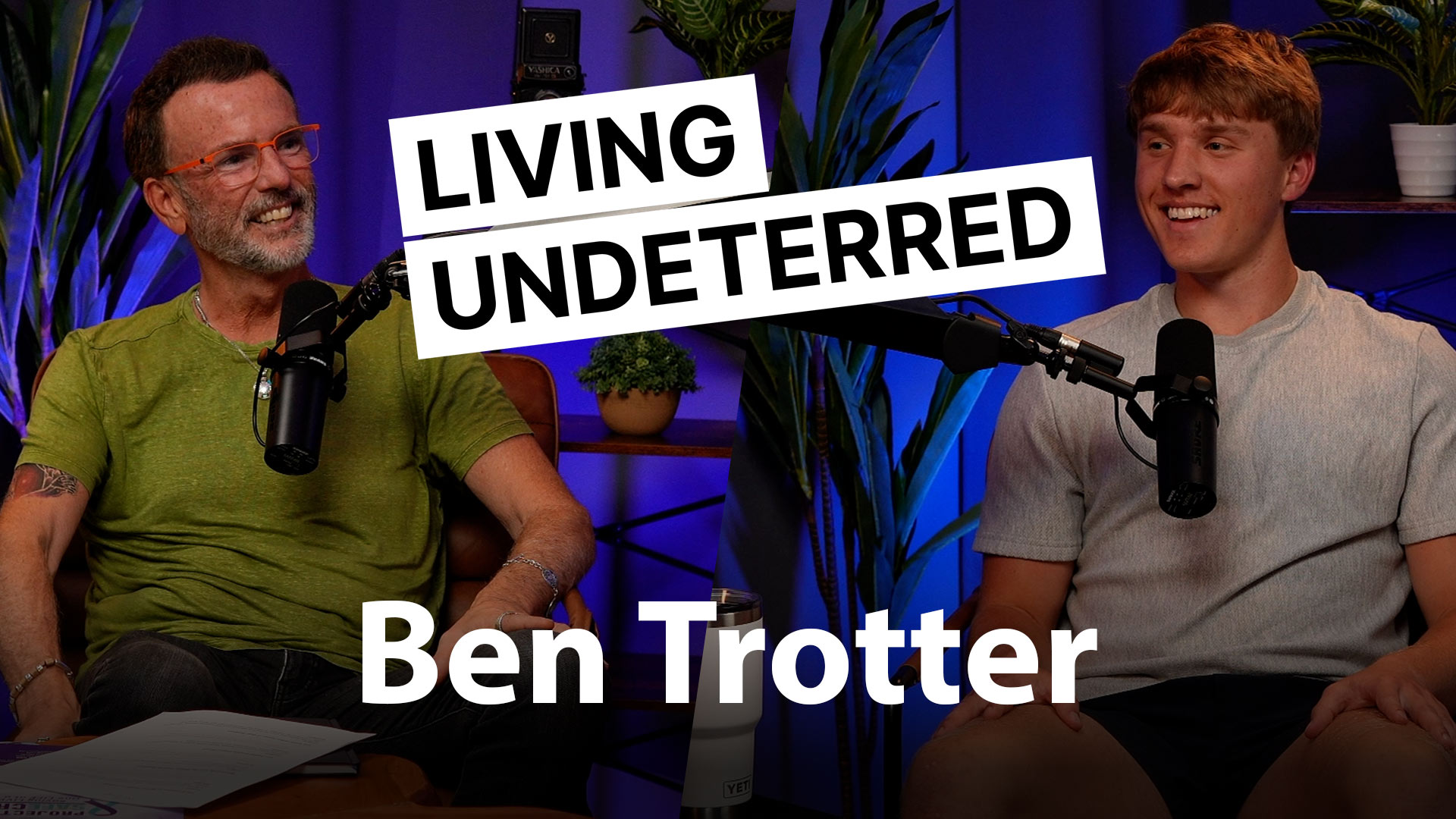
Jeffrey Johnston
January 15, 2026
•
8 min read

In this episode of Living Undeterred, host Jeff Johnston sits down with Ben Trotter, a Brightn Thriver and University of Iowa finance major, for a candid conversation about what mental wellness looks like for Gen Z. Together, they unpack the pressures of growing up online, the blurred line between motivation and discipline, and how technology—especially AI—can both empower and overwhelm young adults.
Ben shares his path from student and financial advisor to mental-health advocate, including how caring for his twin sister with cerebral palsy shaped his empathy and sense of purpose. The two explore everything from cold plunges and delayed gratification to dopamine, daily non-negotiables, and how small wins—not grand gestures—build lasting resilience.
Listen to the full episode here:
Ben: I was born in Denver and raised in Cedar Rapids. My twin sister, Bella, has cerebral palsy, and that experience taught me early about compassion and perseverance. I majored in finance because I wanted to learn how to make money work for me—and for others. During college I reached out to advisors on LinkedIn, landed an internship, earned my insurance and investment licenses, and started building my own book of business while still a sophomore. But I always cared deeply about people, not just profit, and that grew into a passion for mental health.
Ben: I first messaged you about organizing a cold-plunge fundraiser. You encouraged me to think beyond one-off fundraisers and offered your platform to share my message. A few months later, I joined the Brightn Thriver Council. I wanted to contribute in a bigger way—to help create tools that make daily wellness more accessible for people my age.
Ben: It’s polarizing. On one hand, we have instant access to information and coping tools—things older generations had to see a professional for. That’s a big win. But the downside is where we get that information. Algorithms can drag people down rabbit holes and distort reality. If you don’t check your motives—why you’re using a platform or app—you can easily lose touch with yourself. Intention matters more than screen-time limits.
Ben: Honestly, so are parents. The difference is, we grew up with tech, so many of us are more aware of its pitfalls. But everyone struggles with the same dopamine cycle. The key is having self-awareness and structure. When you ask, “Why am I opening this app?”, you start to regain control.
Ben: Discipline builds resilience. I plunged into 40-degree water every day for 30 days—even once with a fever. It never got easier, but it built mental structure. The same way wealth gives you more tools to solve problems, discipline gives you more capacity to handle challenges. It’s never about eliminating struggle—it’s about training your mind to face it.
Ben: Right. Everyone wants motivation, but motivation fades. Discipline is what sustains you. The real growth happens when you do hard things consistently, not just when you feel like it. Reward systems help too—like the positive feedback loops we’re building into Brightn. You should reinforce good behavior, not punish “bad” days.
Ben: It’s inevitable and powerful, but we have to use it responsibly. AI makes support more accessible, but it can also shorten attention spans and feed instant-gratification habits. I’d build any wellness app around positive reinforcement, gamified progress, and autonomy—letting users self-reflect, not just react. The goal is engagement without addiction.
Ben: Resilience. We’re too quick to shield kids from discomfort, which creates fragility. Life’s hard moments are what build character. I think that’s why I love cold plunges—they remind me that discomfort is valuable. The more we chase discipline and delayed gratification, the stronger our mindset becomes.
Ben: Four things, every day: reading, journaling, praying, and lifting. Those are my anchors. None of them give instant dopamine—they all require effort. And I have one rule I live by from David Goggins: “Don’t go to bed in the red.” If the day went badly, do something—anything—to end it better. You control your closing balance.
Ben: Exactly. Mental wellness isn’t about grand transformations—it’s about daily singles, not home runs. Gratitude, reflection, and small wins compound over time. I think that’s the real secret.
Ben: Early on, I read How to Win Friends and Influence People, The Magic of Thinking Big, Think and Grow Rich, and Rich Dad Poor Dad. They opened my eyes to self-transformation. Later, I got into Atomic Habits and behavioral economics—understanding why people make decisions. I’m drawn to psychology now. It helps me see how mindset drives outcomes.
Ben: Honestly, I don’t know—and I’m okay with that. I pray and journal about growth and opportunity. My focus is making the most of the mission I’m on right now, trusting that the next one will reveal itself when it’s time.
Ben: Make discipline your foundation. Have non-negotiables, celebrate small wins, and meet yourself where you are. Whether it’s cold water, journaling, or five minutes of quiet—choose one thing that grounds you and do it every day
Ready to take charge of your mental wellness? Try Brightn free today.
